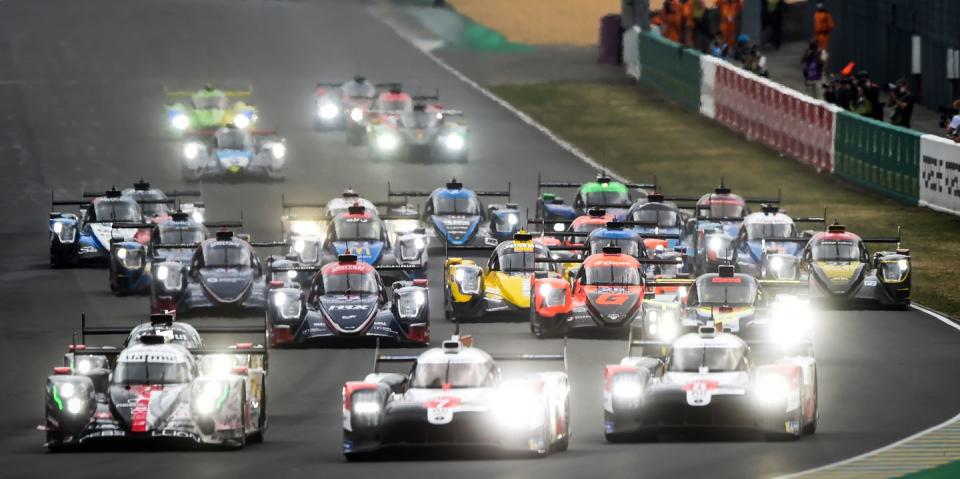24 Hours of Le Mans Won't Be a Toyota Runaway For Much Longer

The 24 Hours of Le Mans is a race that has been defined by highs and lows. As recently as 2016, the race featured competition for the overall win from three manufacturers, all providing their own innovative solution to a hybrid racing car with unbelievable total power meant to last for a full 24 hour race.
Since 2018, Toyota's TS050s have run more or less uncontested, not even having to fully push to stay ahead of private entries from the likes of Rebellion Racing.
The last three years of the 24 Hours of Le Mans have been anticlimactic. The combination of Toyota's standalone factory LMP1 and a waning GTE-Pro field made this year's race perhaps the least climactic yet; The majority of today's 59-car grid was filled by pro-am entries, all in two classes that were defined more by their significant attrition than by their on-track performance. This race, however, was the last of its kind.
While GT racing undoubtedly needs its own reformation, that shift is coming in the battle for the overall win as soon as next year. Toyota remains the only factory contender in the new Hypercar regulations that debut next year, but a commitment from Scuderia Cameron Glickenhaus at least ensures that they will not be alone in the new category.

Whether or not the SCG entry is competitive, a commitment from Signatech Alpine to purchase and run grandfathered-in 2019 Rebellion LMP1 cars will keep both honest, providing a solid privateer benchmark that will at least force the new cars to be as reliable as the outgoing Toyotas were in this year's race. The Signatech team's relationship with Alpine also shows the Renault brand's interest in the race, and could hint at future interest in developing a Hypercar or LMDh entry of their own.
A brighter future follows. In 2022, Peugeot will debut their Hypercar challenger. This will be an all-out program built to win Le Mans overall, the first such competition Toyota has faced since Porsche's 919 Hybrid program folded after the 2017 season. Aston Martin's Valkyrie program is on hold after the company's motorsport interests have been re-allocated to new co-owner Lawrence Stroll's Formula 1 team, but the car had begun initial development, and a change of heart could lead to its further development at any point in the next few years. Factory interest in Hypercar continues, and other OEM entries could enter in the near future.
On another front, IMSA has confirmed its incoming LMDh category, still on schedule for 2022 (Though that could mean a debut at Le Mans in 2023), will allow manufacturers to compete for an overall win at the race under a completely different set of rules. The class will build on the success of IMSA's current DPi class, allowing manufacturers to unite a production-based engine with an off-the-shelf LMP2 car chassis in the spirit of the original Prototypes that preceded modern LMP1.
Current DPi manufacturers Cadillac, Acura, and Mazda are not guaranteed to continue into the LMDh era, but they represent what has been consistent manufacturer interest in the more affordable category that creates an opportunity for a company to bring both its own design and its own engine to a race track without having to worry about developing other components of the car. The new generation of cars will also feature a spec hybrid integration, increasing both power and road relevance.
The dual paths to manufacturer involvement mirror the changes that sports car racing made in the early 90s, providing paths resembling both the LMP1 and GT1 categories of old to compete for an overall win in two very different ways. Whether or not these programs can be adequately balanced to be similarly competitive remains to be seen, but Toyota's run of Le Mans wins without serious competition is coming to a swift end.

